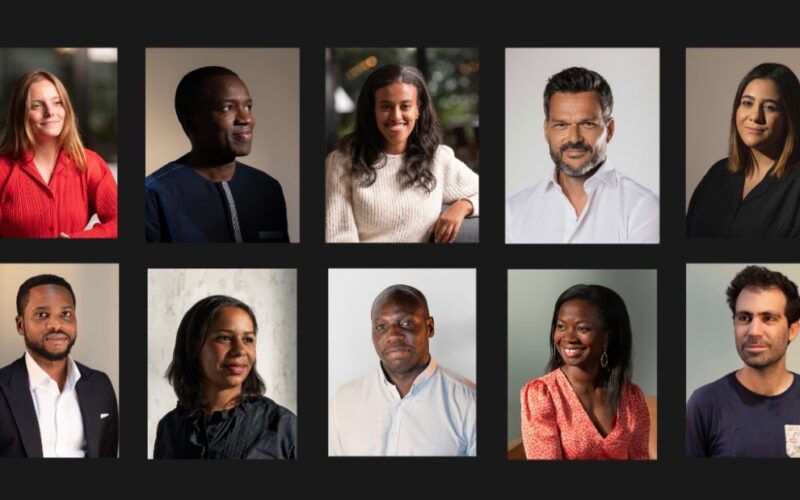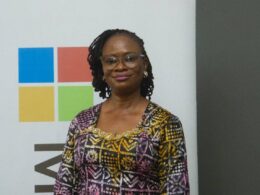When Sheikh Khaled bin Mohamed, Crown Prince of Abu Dhabi, took the stage at the first-ever G20 Summit held on African soil last weekend, he brought with him a message that could fundamentally alter Africa’s position in the global AI race: the UAE is betting $1 billion on the continent’s AI future.
The announcement, delivered on November 22, 2025, at the Johannesburg Expo Centre during the historic summit, represents more than just another infrastructure investment. It’s a strategic play that positions the UAE—now ranked second globally in AI capability—as a key architect of Africa’s technological transformation at a moment when the continent risks being left behind in the AI revolution.
By the Numbers: UAE’s Growing African Footprint
The AI commitment arrives against the backdrop of an already substantial UAE-Africa relationship. The numbers tell a compelling story:
- $118.6 billion in UAE investments in Africa between 2020-2024
- $107 billion in bilateral trade in 2024 alone—a 28% year-over-year increase
- Fourth-largest investor in Africa, behind only China, the European Union, and the United States
- 188,000 advanced AI chips and 6,400MW of compute capacity deployed domestically, according to TRG Datacenters
This infrastructure advantage—making the UAE second only to the United States in AI capability—now becomes Africa’s leverage through the “AI for Development Initiative” unveiled by UAE Minister of State Saeed Bin Mubarak Al Hajeri.
Beyond Infrastructure: A Vision for AI-Powered Development
The initiative goes far beyond simply building data centers. Al Hajeri outlined plans to introduce AI technology across three critical sectors where African nations face significant development challenges: education, healthcare, and climate adaptation.
“We consider AI not just as a future industry but a cornerstone of humanity’s future,” Al Hajeri said in his summit address. “My country is actively accelerating innovation to enhance productivity and drive significant advancements in the global economy, with a strong commitment to developing responsible and inclusive AI for the benefit of everyone.”
The $1 billion investment will provide African nations with access to AI computing power, technical expertise, and international partnerships—resources that have historically been concentrated in developed economies, leaving Africa operating at a structural disadvantage.
What the $1B Will Fund:
- Digital infrastructure development and expansion – Building the physical backbone required for AI deployment
- AI-enabled public services enhancement – From digital identity systems to government service delivery
- Productivity tools and platforms for local businesses – Ensuring SMEs can leverage AI for competitive advantage
- Technical training and capacity building programs – Developing the human capital to sustain AI ecosystems
- Cross-border AI research and development partnerships – Fostering collaboration between African institutions and global AI leaders
Why This Matters Now: Africa’s AI Infrastructure Crisis
The timing of the UAE’s commitment couldn’t be more critical. Africa faces a stark AI infrastructure deficit that threatens to lock the continent out of the next wave of economic growth.
The Infrastructure Gap:
- Africa accounts for less than 1% of global data center capacity, according to the Africa Data Centres Association–Oxford Business Group study
- Approximately 600 million people still lack access to electricity across the continent (IEA Africa Energy Outlook 2024)
- Mobile internet remains among the most expensive globally relative to income (Alliance for Affordable Internet 2024 report)
- The continent hosts minimal AI compute infrastructure compared to its 1.4 billion population
This infrastructure deficit creates a vicious cycle: without compute power, African startups and researchers can’t develop AI applications. Without local AI applications, there’s insufficient demand to justify infrastructure investment. The UAE’s $1 billion commitment breaks this cycle by providing both infrastructure and practical applications simultaneously.
Strategic Implications for African Tech Ecosystem
The investment comes at a critical juncture for Africa’s tech sector. While the continent has seen explosive growth in fintech and mobile technology—with success stories like M-Pesa, Flutterwave, and Paystack demonstrating African innovation—AI infrastructure has remained a significant gap, limiting opportunities for the next generation of innovation.
Potential Impact Areas:
Education: Addressing Teacher Shortages Through AI
AI-powered personalized learning platforms could address critical teacher shortages and improve educational outcomes across diverse linguistic and cultural contexts. With Africa’s median age at 19.3 years, the continent has the world’s youngest population—a demographic dividend that could be unleashed or wasted depending on education quality.
The UNESCO Institute for Statistics estimates Africa needs an additional 17 million teachers to achieve universal primary and secondary education. AI tutoring systems, adaptive learning platforms, and automated assessment tools could help bridge this gap while respecting Africa’s 2,000+ languages and diverse learning contexts.
Healthcare: Extending Specialist Care to Remote Areas
Remote diagnostics and AI-assisted medical services could extend specialist care to underserved rural areas where doctor-to-patient ratios remain critically low. The WHO reports that Sub-Saharan Africa has just 2.2 physicians per 10,000 people compared to 33 in Europe and 26 in the Americas.
AI applications in radiology, pathology, and diagnostics—already deployed successfully in countries like Rwanda through partnerships with companies like Zipline—could be scaled continent-wide with proper infrastructure. Telemedicine platforms powered by AI could bring specialist consultations to rural clinics that have never seen a cardiologist or oncologist.
Climate Adaptation: Smart Agriculture for 60% of the Population
Predictive modeling and smart agriculture solutions could help African farmers adapt to increasingly volatile weather patterns and optimize crop yields. With approximately 60% of Africans reliant on agriculture for their livelihoods, climate-adaptive AI could be literally life-saving.
AI-powered weather prediction, soil analysis, pest detection, and yield optimization tools—delivered via mobile phones that 83% of Africans now own—could transform smallholder farming. Early warning systems for droughts, floods, and crop diseases could prevent famines before they start.
UAE’s Dual Strategy: Domestic AI Dominance + Global AI Influence
The Africa investment must be understood within the context of the UAE’s broader AI ambitions. Abu Dhabi is simultaneously developing what’s being called the world’s largest AI data center campus—a 10-square-mile UAE-U.S. AI Campus developed by Emirati AI company G42 in partnership with American firms including Microsoft, projected to be the “largest data center deployment” outside the United States.
G42’s $1.5 billion partnership with Microsoft, announced earlier this year, positions the UAE as a bridge between Western AI technology and Global South deployment. The Africa initiative extends this strategy, allowing the UAE to:
- Export its AI technology stack developed domestically
- Secure strategic resources like critical minerals essential for AI hardware
- Build geopolitical influence as a Global South technology leader
- Counter Chinese AI infrastructure investments in Africa with a Gulf alternative
“Africa is important to the UAE’s vision of energy, resource and AI deployment,” noted Rachel Ziemba, founder of Ziemba Insights, in an interview with The National. “One challenge will be navigating the US and Chinese ecosystems and technology access.”
The UAE’s approach offers African nations what some analysts call “sovereign-grade” AI infrastructure—less subject to the geopolitical tensions that have made Chinese technology controversial and American technology subject to export controls.
The Data Sovereignty Question
While the UAE’s commitment has been welcomed by African leaders present at the G20—including South African President Cyril Ramaphosa, who hosted the summit under the theme “Solidarity, Equality, Sustainability”—important questions remain about data sovereignty and local capacity building.
Critical Concerns:
Who Controls the Data?
As African governments and businesses utilize UAE-provided AI infrastructure, questions arise about data residency, access, and control. Will African data stay in Africa? Who can access it? Under what legal frameworks?
Local Capacity vs. Dependency
Will the initiative genuinely build African AI expertise, or create dependency on UAE technology and expertise? The success of the programme will depend heavily on its commitment to training African engineers, data scientists, and AI researchers who can eventually maintain and advance systems independently.
Alignment with African Priorities
AI development could serve external interests—resource extraction efficiency, supply chain optimization for global markets—rather than African priorities like job creation, local manufacturing, and inclusive growth. Governance structures ensuring African ownership of priorities will be essential.
Regulatory Frameworks
Most African nations lack comprehensive AI regulation. Will the UAE initiative help develop these frameworks, or will it operate in regulatory vacuums that could later prove problematic?
Execution Challenges: From Announcement to Impact
The history of grand infrastructure announcements in Africa is littered with projects that never materialized or delivered far less than promised. For the UAE’s $1 billion commitment to avoid this fate, several execution challenges must be navigated:
Infrastructure Variability
“Infrastructure variability across the continent will shape where investment flows most effectively,” noted Rachel Ziemba. “Countries with more stable domestic power and capacity to scale it will be in a better position.”
This suggests the investment may concentrate in countries like:
- Rwanda – Already positioning itself as Africa’s tech hub with reliable power and pro-business policies
- Kenya – Home to Africa’s leading tech ecosystem in Nairobi with established fiber-optic backbone
- South Africa – Most developed infrastructure on the continent despite recent electricity challenges
- Egypt – Northern African tech hub with existing UAE digital infrastructure partnerships
- Nigeria – Africa’s largest economy with massive market but significant power challenges
Countries with chronic electricity deficits may struggle to leverage AI infrastructure even if deployed locally.
Technical Expertise Gap
Africa faces a significant shortage of AI talent. The partnership must include substantial investment in education and training—not just infrastructure—to create the human capital needed to build, maintain, and innovate with AI systems.
Universities across Africa are beginning to offer AI programmes, but they remain small-scale. The African Masters in Machine Intelligence (AMMI), supported by Google and Facebook, graduated just 31 students in its 2024 cohort—a drop in the ocean compared to need.
Policy and Regulatory Uncertainty
Inconsistent policies across African nations create challenges for continent-wide initiatives. While the African Union has expressed interest in coordinated AI governance, implementation remains fragmented. The UAE will need to navigate 54 different national contexts with varying regulatory maturity.
Comparing Global AI Investments in Africa
The UAE’s $1 billion commitment joins a growing list of international AI investments in Africa, though few match its scale:
China:
- Extensive AI investments through Belt and Road Initiative
- Focus on “smart cities” and surveillance infrastructure
- Huawei training programmes across multiple countries
- Dollar amounts undisclosed but estimated in billions
United States:
- Prosper Africa AI for Development initiative ($100 million announced 2024)
- USAID digital development programmes
- Private sector investments from Google, Microsoft, Meta
- Focus on democratic governance and digital rights
European Union:
- Digital for Development (D4D) Hub programmes
- €600 million Africa-Europe Digital Economy Package (2020-2024)
- Focus on digital rights and regulation harmonization
Tech Giants:
- Google AI Research Center in Accra, Ghana
- Microsoft 4Afrika initiative
- Meta’s AI research partnerships with African universities
- Amazon Web Services (AWS) data centers in Cape Town and a planned expansion
The UAE’s approach differentiates itself through:
- Single-source commitment at scale
- Focus on infrastructure rather than just research or training
- Global South-to-Global South partnership framing
- Integration with existing UAE-Africa economic ties
What Success Looks Like: Measurable Outcomes
For the initiative to be deemed successful beyond the announcement, specific outcomes must materialize within 3-5 years:
Infrastructure Metrics:
- Number of AI compute centers deployed and operational
- Petaflops of compute capacity available to African developers
- Latency improvements for AI applications hosted locally vs. foreign clouds
- Cost reduction in AI services for African businesses and governments
Application Metrics:
- Number of AI-powered services launched in education, healthcare, agriculture
- Measurable improvements in service delivery (e.g., diagnosis accuracy, crop yield predictions)
- African startups leveraging infrastructure to build AI applications
- Cost savings for governments deploying AI-enabled services
Capacity Building Metrics:
- Number of African engineers and data scientists trained
- AI research papers published by African institutions
- Locally developed AI models and applications
- African AI companies achieving venture funding and scale
Economic Metrics:
- AI contribution to GDP growth in participating countries
- Job creation in AI and related sectors
- Reduced costs for businesses adopting AI productivity tools
- Venture capital flowing to African AI startups
The Broader Context: AI as the New Resource Competition
The UAE’s $1 billion commitment must be understood within the broader context of great power competition over AI supremacy and the resources that enable it.
Africa holds:
- Cobalt: 70% of global reserves (essential for batteries)
- Manganese: 80% of global reserves (critical for steel and batteries)
- Platinum group metals: Over 90% of global reserves (used in electronics)
- Rare earth elements: Growing production competing with Chinese dominance
These minerals are essential for AI hardware—data centers, chips, cooling systems. By investing in African AI infrastructure, the UAE positions itself as a preferred partner for African nations controlling these resources.
This creates a more equitable exchange than historical resource extraction: technology and infrastructure for secure supply of materials needed for the global AI economy.
Looking Ahead: A New Chapter or Déjà Vu?
Africa has seen infrastructure promises before. Chinese Belt and Road Initiative projects delivered some transformative infrastructure—railways, ports, power plants—but also created debt burdens and dependency that complicated African sovereignty.
Western development initiatives have sometimes prioritized donor country interests over recipient needs, with projects designed more for optics than impact.
Will the UAE’s AI investment avoid these pitfalls?
Early signs suggest thoughtful design:
- Focus on enabling technologies (AI infrastructure) rather than specific applications
- Commitment to capacity building alongside hardware deployment
- Framing as partnership rather than aid or extraction
- Integration with existing UAE-Africa economic relationships
But the true test will be in execution and ensuring these AI capabilities translate into tangible benefits for African communities—not just more efficient resource extraction for global supply chains.
As Minister Al Hajeri emphasized in Johannesburg, the investment reflects a recognition that “no country should be left behind in the age of AI.” For a continent with the world’s youngest population, fastest-growing cities, and massive untapped potential, that principle could prove transformative—if implemented thoughtfully and inclusively.
The G20 announcement marks just the beginning. The real work of building Africa’s AI future starts now.













Comments 2